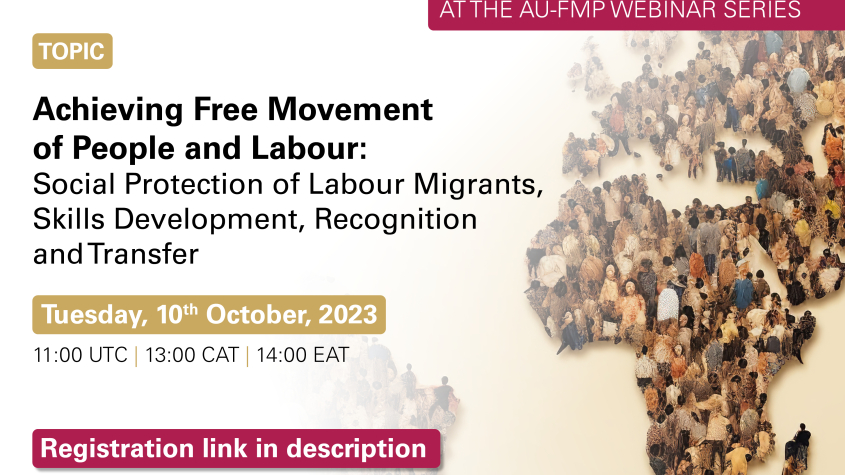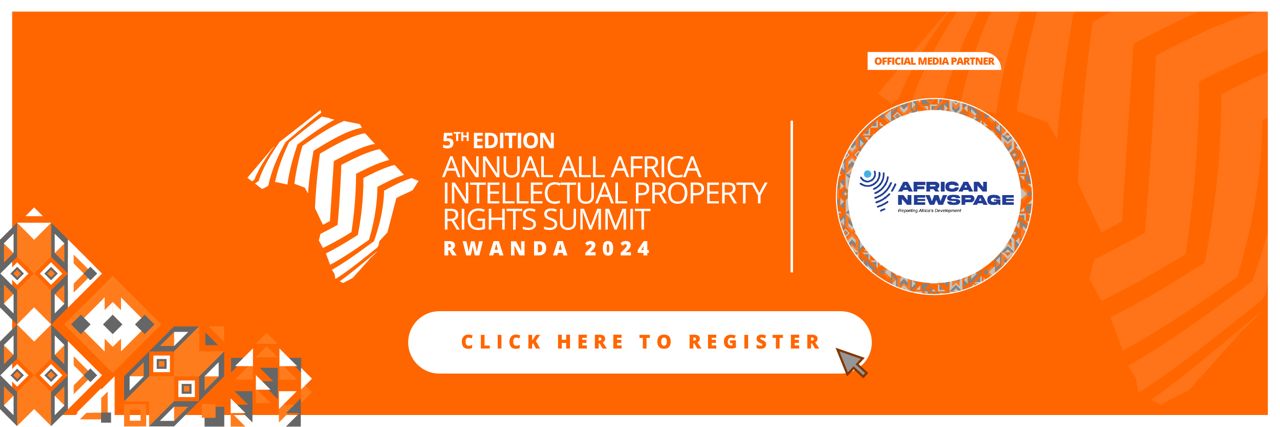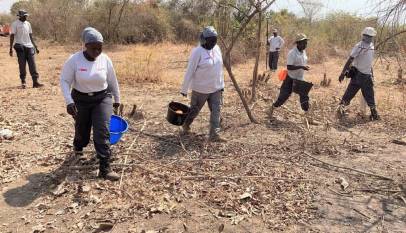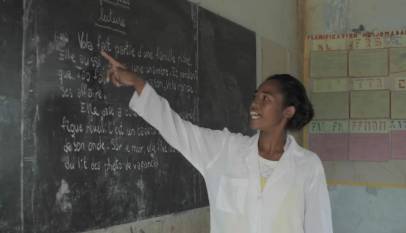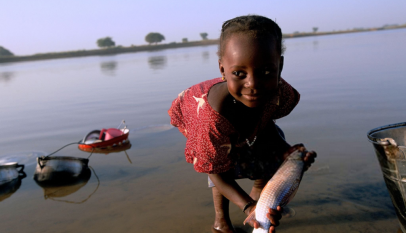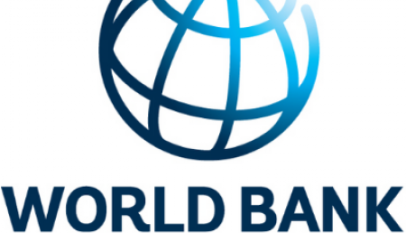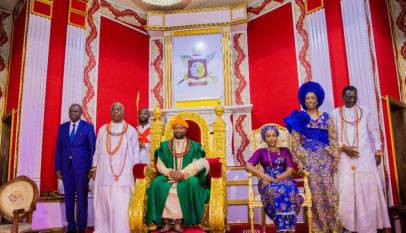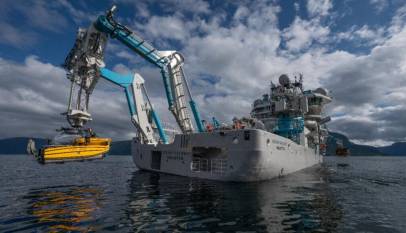3rd ECOSOCC-GIZ FMP Webinar Spotlights Migrants’ Social Protection, Skills Development
The third edition of the African Union Economic, Social and Cultural Council’s (ECOSOCC) five-part expert webinar series on the AU Free Movement Protocol (AU-FMP) has highlighted the significance of the social protection of labor migrants as well as their skills development.
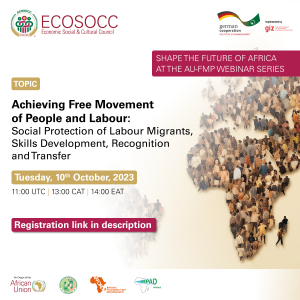
The webinar series is organized by ECOSOCC in partnership with the African Free Movement Consortium (AFMC), bringing together experts from the African Migration Development Policy Centre (AMADPOC), the African Foundation for Development (AFFORD) UK, and the Pan African Network in the Defence of Migrant Rights (PANiDMR). The series is being supported by the Deutsche Gesellschaft für Internationale Zusammenarbeit (GIZ), which implements its activities on behalf of the German Government.
A speaker at the webinar, Mr Andrew Allieu, Senior Social Protection Specialist at the International Labour Organisation (ILO), said there were over 14.5 million labor migrants in Africa, noting that the majority of these migrants moved within their Regional Economic Communities (RECs) with the exception of North Africa, where migrants were moving to countries outside of the continent. Therefore, Mr Allieu said the free movement frameworks of RECs were very crucial to migration governance and the social protection of migrant workers in Africa.
“When migrants move from a country of origin to a destination country, their needs for social protection increase – whether they are moving to a lower, middle or high-income country. However, the social security frameworks of many countries do not cover labor migrants. There are also barriers to migrants’ access to social protection, such as lack of documentation, access to information and language barriers, as well as a lack of contributory capacity as most migrants mostly work in the informal sector. Migrant workers are important contributors to the economies of both origin and host countries,” he said.
The ILO social protection expert said most AU Member States either do not have social protection legislation for migrant workers or do not have social security components in their bilateral and multilateral labor agreements, as well as lacking the financing capacity to provide social security to labor migrants. He, however, said RECs such as ECOWAS, SADC and EAC have established their own social protection policies, which are linked to the Joint Labor Migration Program (JLMP) and the Global Compact for Migration.
Ms Sarah Barasa of the Labor Mobility and Social Inclusion Division at the International Organization for Migration (IoM) noted that the FMP’s Article 18 speaks to the mutual recognition of skills, academic and technical qualifications through bilateral and multilateral arrangements. Ms Barasa added that the AU is currently developing the African Continental Qualifications Framework (ACQF), a plan to support the comparability, quality and recognition of qualifications between countries, including higher education qualifications.
“Skills recognition enhances transparency and provides trusted information for various stakeholders about migrants’ skills, which helps in ascertaining whether or not they possess the required abilities. It helps make the skills of migrants visible to potential employers and helps countries understand their education and skills gaps. Skills development is a pathway out of the informal economy for migrants and helps boost their career development. If integrated into labor mobility, skills development holds great potential for enhancing individual lives and contributing to society’s good,” she assured.
Ms Barasa described as crucial to skills development the formal recognition of foreign qualifications by Member States, which entails identifying, assessing, documenting, and certifying formal and informal certificates of standards of an established education system. This is in addition to harmonization of higher education systems, which entails RECs and Member States coming together to approximate and converge their education systems.
In his remarks earlier on, William Carew, Head of the ECOSOCC Secretariat, said the FMP and Migration Policy Framework for Africa (MPFA), among other AU instruments, were created to guarantee the social protection of migrant workers as well as lower and subsequently eliminate barriers to the free movement of Africans across national and regional borders—to visit, trade, work, live, and establish businesses. By default, Carew said the FMP, along with the African Continental Free Trade Area (AfCFTA), were meant to facilitate the mobility of labor, people, services, goods and capital.

